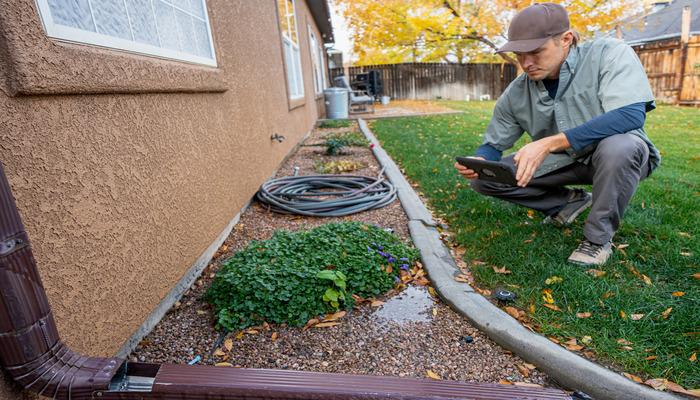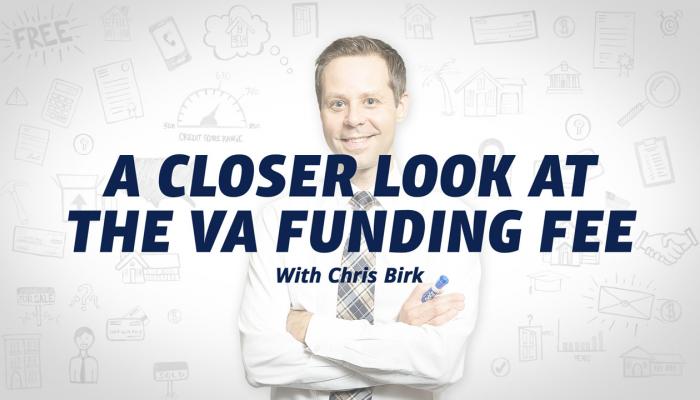If you’re a self-employed VA borrower, you should be prepared to do a bit more work when it comes to verifying your income and providing proper documentation to support your business. While crucial for confirming your loan eligibility, these verification policies vary depending on the lender.
Much like buying a home, for many people being their own boss or owning their own business is part of the American Dream. But when it comes to getting a VA mortgage, self-employed Veterans can face some unique challenges.
Self-employment income can be less consistent than income from a traditional, salaried position. That inconsistency will often trigger additional scrutiny from a lender. The main reason for this is so the lender can assess the risk of your loan and make sure you can take on a monthly VA mortgage payment.
Can You Get a VA Loan if You're Self-Employed?
Yes, in most cases self-employed applicants will need two years of tax returns and other critical business documents to verify their income and contend for a VA loan.
Who is Self-Employed?
Self-employment is a broad term that can cover multiple employment scenarios.
Some of the more common can include:
- Borrowers with sole ownership of their business
- Borrowers who own at least 25 percent of a business
- Freelance and contract workers whose income is solely or mostly from IRS Form 1099-MISC
Policies and guidelines on self-employment income will vary depending on the lender and other factors.
For example, Veterans United won't typically consider borrowers who work for a family member or family-owned business to be self-employed unless they own at least 25 percent of the company. We would still require two years' worth of tax returns in these cases, but the borrower only has to have worked for the family business for a year.
Retirees, disabled Veterans, and others might document their income with a Form 1099, but these situations aren't typically considered self-employment. That's an important distinction because income guidelines for self-employment are often more stringent.
Documenting Self-Employed Income
If you're self-employed, you'll need to verify that your business is on solid financial ground. VA lenders will often require your most recent two years' worth of business and/or personal tax returns.
Why two? For a couple of reasons:
- Lenders will look to calculate an average income to better gauge your earnings trajectory and ability to repay the loan.
- They want to verify that your income isn't headed in the wrong direction. Decreases in self-employment income year-over-year can be a significant red flag, and lenders will often want a written explanation for the drop, not to mention the confidence that you can make those mortgage payments.
If a drop is too steep, lenders might ultimately decline your VA home loan application. What constitutes "too steep" will vary by lender, and it's often at the discretion of their underwriting team.
The borrower might have a perfectly reasonable explanation for a 5- or 10-percent drop in income year-over-year. In other cases, the decrease could signal major financial distress and push underwriters to ask for more documentation or reject the loan.
Every self-employment situation is different. Depending on your particular circumstances, lenders may closely examine the following records to assess your income and ability to repay:
- Full individual income tax returns for the previous two years
- Full business income tax returns for the previous two years
- Year-to-date profit and loss statements
- Current business balance sheets
- A list of all stockholders or partners
- And more
At Veterans United, we will typically need two years of tax transcripts and tax returns to verify rental income, Schedule A/C/D/E/F income, and other unique income streams.
Lenders aren't likely to consider you self-employed if you have a side business but earn most of your income as a salaried W-2 employee. But if you want to count income from your freelance work, lenders will want to document that same two-year history from tax returns and Form 1099s.
Business Losses and Net Income
In addition to the income figures, tax documents also give lenders a look at business losses and expenses. That's critically important because lenders can only count the income on which you pay taxes.
Here's what that means for self-employed borrowers: Mortgage lenders look at your net profit, not your gross profit. Any losses or business expenses you "write off" on your taxes aren't something lenders can count as income.
VA Self-Employed Income Calculation
If your business made $100,000 last year, but you wrote off $50,000 in losses or expenses, lenders will only count the remaining $50,000 as effective income toward a mortgage.
Needless to say, that can come as a shock to many prospective borrowers. Self-employed Veterans should keep this "net v. gross" difference top of mind if a home purchase is on their horizon.
Many business owners utilize losses and expenses on their taxes, but lowering your tax burden can come with tradeoffs that impact homebuying.
Every self-employment scenario is different. Talk with a Veterans United loan specialist at 855-259-6455 for more information about your particular situation.
Answer a few questions below to speak with a specialist about what your military service has earned you.
Related Posts
-
 VA Appraisal RequirementsExplore everything a homebuyer needs to know about the VA appraisal, including the process, property requirements, pitfalls, termite inspections, water quality checks, appraisal fees, challenging a low appraisal and the differences between the VA appraisal and a home inspection.
VA Appraisal RequirementsExplore everything a homebuyer needs to know about the VA appraisal, including the process, property requirements, pitfalls, termite inspections, water quality checks, appraisal fees, challenging a low appraisal and the differences between the VA appraisal and a home inspection. -
 2024 VA Funding Fee: Complete Explainer with Charts and ExemptionsThe VA funding fee is a governmental fee required for many VA borrowers. However, some Veterans are exempt, and the fee varies by VA loan usage and other factors. Here we explore the ins and outs of the VA funding fee, current charts, who's exempt and a handful of unique scenarios.
2024 VA Funding Fee: Complete Explainer with Charts and ExemptionsThe VA funding fee is a governmental fee required for many VA borrowers. However, some Veterans are exempt, and the fee varies by VA loan usage and other factors. Here we explore the ins and outs of the VA funding fee, current charts, who's exempt and a handful of unique scenarios.


